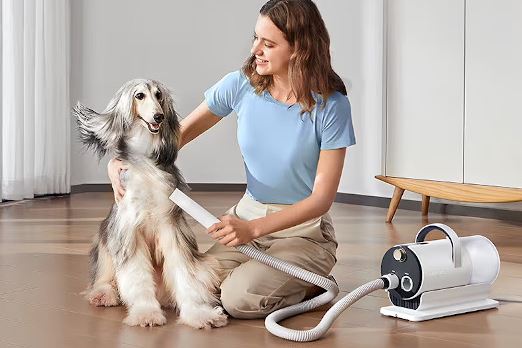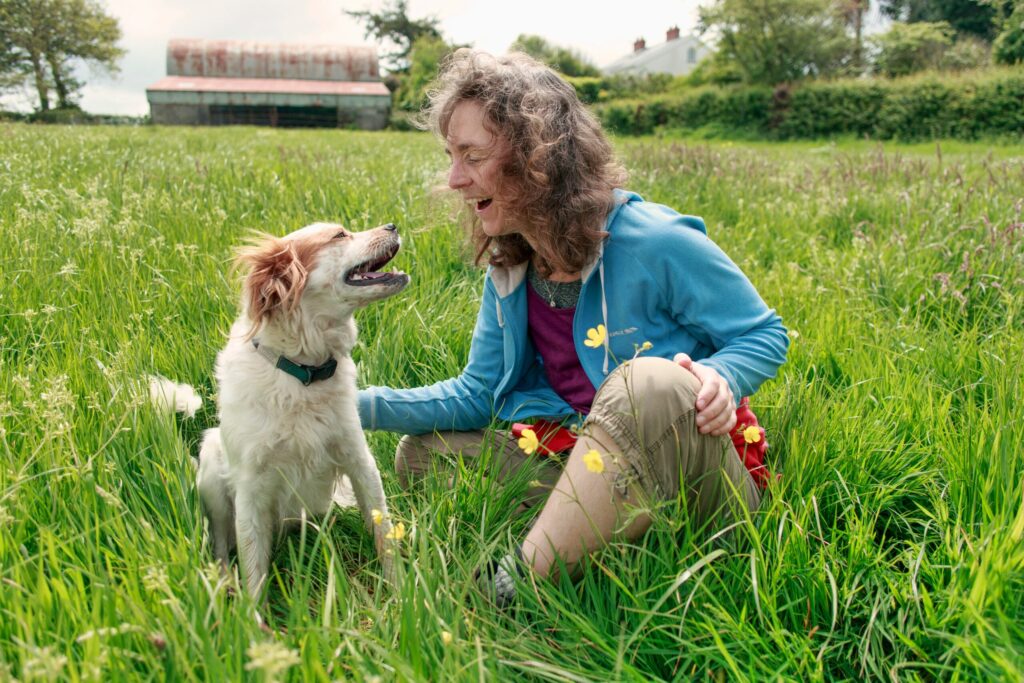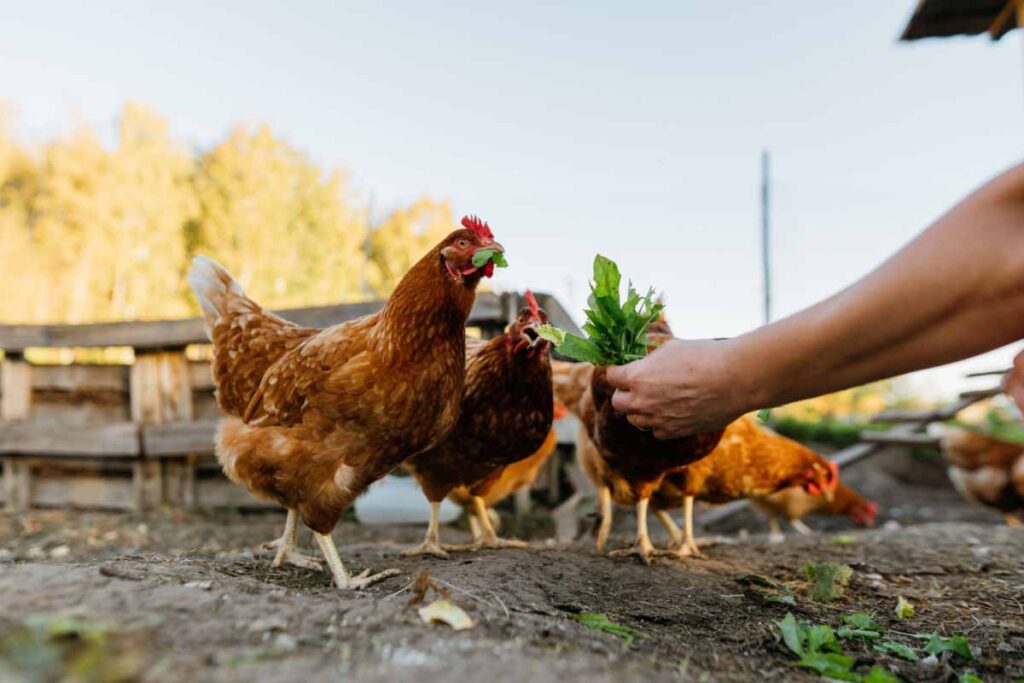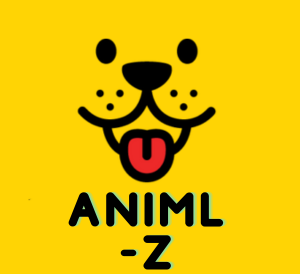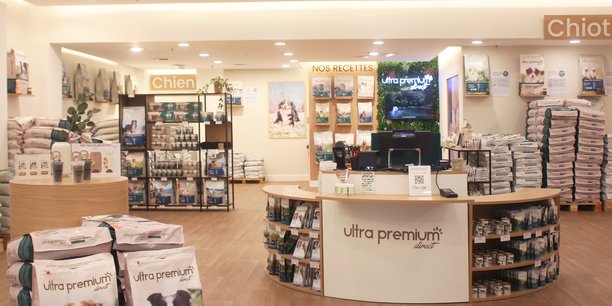
Ultra Premium Direct, which employs 180 people, will further increase its workforce by almost 40% in 2024! Specializing in dog and cat food manufactured in Agen (Lot-et-Garonne), the company announced at the start of the year the creation of 70 permanent positions to support its growth and development ambitions. At the same time, the company is pushing the walls. “We are launching a major expansion project which will allow us to increase next year from 8,000 to 15,000 m2 at the factory level for manufacturing and logistics and from 750 to 1,350 m2 for offices,” announcement Matthew Wincker, CEO ofUltra Premium Direct. “It’s about preparing for the coming years”, he warns. The company recorded an increase in turnover of 45% in 2023. “It stands at 55 million and we should do 75 million in 2024.” A dazzling growth since the company generated 13 million euros in turnover in 2019 and 31 million euros in 2021.
“In a context where the animal is increasingly considered as a member of the family, the market tends to become more premium, analyzes Matthieu Wincker. There is relatively little arbitration in this area. In times of hyperinflation and crisis, particularly in 2008, this has always been seen. There is some market resilience. It increased slightly in volume in 2022 and 2023. On the other hand, it increased significantly in value taking into account the increases in average price. In 2023, we are seeing 35% growth in volume. »
Ultra premium Direct explains that it has limited price increases to 10% in 2023, “compared to 17 to 18% in mass distribution. We have improved our price competitiveness which was already good, with direct factory price positioning and we have won new customers”explain Matthew Wincker which specifies that it has always had a dynamic of winning new customers. The company is promoting French manufacturing and new innovations in food. “This year, we will launch a natural range. »
To reach new customers, Ultra Premium Direct, which is historically a pure player, is also banking on opening physical stores. Nine have already opened. There will be 17 at the end of the year and around twenty openings are planned each year from 2025 for a target of 150 stores. The international will come next. There were tests in 2023 in Italy but he will return to that later. “There is already a lot of growth to be achieved in France on the historic canal and the stores. »
100 million euros for Zoomalia
Another benchmark in the BtoC sector, Zoomalia, which sells animal food, amenities and accessories, historically online, is also accelerating the development of its stores. After two years of conclusive tests, Zoomalia has set a target of 130 stores by the end of 2028. 37 are open, the first since 2016. “All the studies we have done since then show that through stores, we reach a different clientele. There is not necessarily any interference between the two distribution channels which are very complementary,” explains Pierre-Adrien Thollet, founder of Zoomalia.
A French market worth nearly six billion euros
- 76.4 million pets in France, according to Promojardin-Prom'animal which brings together professionals in the sector. Nearly one in two households has at least one pet.
- 5.8 billion euros in turnover in 2022, up 7% year-on-year (cat 46%, dog 37%). Three quarters of this market corresponds to food products.
- The market leader is the German company Fressnapf / Maxi Zoo which displays 538 million euros in turnover (+26%) and targets 600 stores in France by the end of 2026
- Breakdown by distribution channels in 2022: 45% large food stores23% garden specialists, 15% internet, 15% pet store, 2% large furniture store.
The company which employs 300 people between the headquarters in Saint-Geours-de-Maremne and the stores will, in fact, recruit around fifty people for its stores. Around fifteen positions are also open for the administrative part.
“The business is doing well. Our turnover flirts with 100 million euros for the first time! The food component represents 70% of the activity and customers are not going to stop feeding their animals. We are in an essential market! We notice that customers spend the same price on it but then opt for the range below. During this period, we also acquired large retail customers. Which explains the fairly strong growth. But if there was no impasse on the food, the customers made trade-offs on ancillary parts similar to leisure. recognizes Pierre-Adrien Thollet.
However, he does not see this sector as a protected sector.
“There is not a recipe. These remain professions which are not easy, where it is possible to make turnover, but where achieving profitability is complicated. As far as we are concerned, we have been able to take turns and we have always been profitable. We have chosen private label brands (MDD). We have also worked on the continuous optimization of all parts of the company. We have internalized as many things as possible. After 15 years, it pays off, but this is not only due to the market, which is extremely competitive. Our main French competitors have closed shop this year. »
Zolux continues its strategic international investments
When analyzing the market, the observation is identical at Zolux, a BtoB player, “creator manufacturer”, which offers three main brands: Zolux (equipment products, accessories, snacks and food for small animals), Laboratoire Francodex ( animal health) and Hopi from the Saint Bernard mission society.
“In this period of crisis, essential products are a priority, starting with animal feed. Animal health products also performed well. At Laboratoire Francodex, which represents 15% of the group's activity, we achieved +12% turnover at the start of the financial year. On the other hand, all accessory capital goods are less essential and therefore declining in sales volume. This is true on the market as at Zolux which experienced a decline in volume of around 10 to 15% over 2023”explains Matthieu Haurit, president of Zolux, who nevertheless remains optimistic.
“The inflationary storm is working against non-food volumes. But it’s a conjuncture. Structurally there is no concern. The market is buoyant. Customers adopt behaviors very similar to those of a child. »
In this context, Zolux, which has acquired land intended to accommodate a new animal health factory, the logistics of Laboratoire Francodex and the head office, is currently frozen. However, the company is continuing its product development and has undertaken important structural projects, namely the acquisition of a manufacturing company in the Czech Republic and the opening of its subsidiary Zolux Iberia in Spain at the end of 2022.
“These two projects, despite the context, are strategic for the company, one for manufacturing, the other for distribution. This creates value and guarantees employment,”underlines Matthieu Haurit.
For Zolux, which has three subsidiaries abroad and is distributed in 45 countries, exports, which are growing, account for almost a third of the activity.
“All markets are affected by the crisis but not in the same way. In France, the particularly significant decline is reflected in all specialized stores which are affected by a drop in consumption. This is a little less true in other countries. In Eastern Europe, inflation has been very high but the rebounds are more rapid,” confides Matthieu Haurit.
The Zolux group, which employs 500 people, generates more than 120 million euros in turnover.

